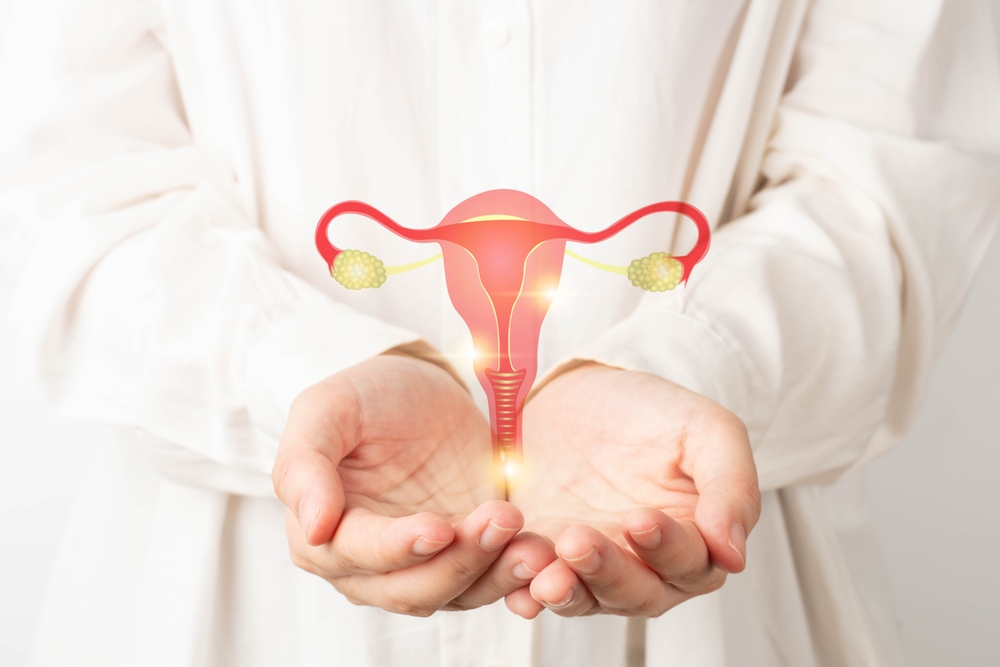I am so classy that even my ovaries wear a string of pearls.
Polycystic Ovarian Syndrome (PCOS), which impacts 6% to 20% of Pakistani women of reproductive age is becoming one of the common endocrine issues. If you have PCOS, you may not have periods for months, or if you have them they last for days.
The dilemma here is that, due to lack of proper knowledge, a number of women still have this question of how do I know I have PCOS?
Well, with PCOS a number of small sacs of fluid start developing along the outer edge of the ovary. These cysts/sacks contain immature eggs called follicles, failing to release eggs. You also may have an organ called androgen present in excess in the body.
What are the First Signs of PCOS?
The first and foremost question that comes to mind concerning PCOS is the signs and symptoms. The early signs of PCOS include:
Irregular Periods
Having excessive periods or having no periods at all can be common signs of PCOS. So, to answer how do I know I have PCOS, having periods that last for many days to periods that are longer than usual are a huge sign. Having less than 9 periods a year can be a huge sign, which means that your periods occur 35 days apart.
Polycystic Ovaries
Your ovaries start to get bigger and the follicles full of immature eggs start to develop. Around the edge of the ovaries. The ovaries then don’t work as they should.
Excessive Androgen
The hormone androgen starts to increase which results in excessive facial and body hair growth. This is also called hirsutism. With that, an answer to ‘how do I know I have PCOS’ is male pattern baldness and severe acne can happen too.
PCOS symptoms are seen to be more severe in people with obesity.
Some other common symptoms of PCOS are:
- Night sweats
- Migraines
- Oily skin
- Weight gain
- Thinning of hair
What is the Main Cause of PCOS?
The exact cause of PCOS is not known. However, certain factors can play a role. These can be:
Heredity
Some pieces of research suggest that PCOS is linked with certain genes. That is why it is often seen daughters suffer from PCOS after their mothers have had a fair share of the syndrome. So having a family history of PCOS can play a huge role.
Resistance to Insulin
According to the top reviewed gynecologist in Lahore, Assist. Prof. Dr. Maria Imran “Insulin is an important hormone that is produced by the pancreas. It allows the cell to consume sugar which is the primary energy supply in the body.” Now how is it the answer to ‘how do I know I have PCOS?’Well, if the cells are resistant to the insulin action then the blood sugar levels shoot up. This makes the body produce more insulin to bring down the blood sugar level.
Now, this too much presence of insulin can cause too much production of androgen the male hormone. Due to this, you can have issues with ovulation – the release of eggs from the ovary.
One of the major signs of insulin resistance can be dark patches on the skin on the armpits, under the breasts, neck, and groin. An increased appetite and weight gain are the other major signs of insulin resistance.
Low-grade Inflammation
This cause can help you understand, How do I know I have PCOS? In response to any injury or infection, the white blood cells make substances. This is called low-grade inflammation.
Research shows that people with PCOS have a long-term low-grade inflammation that can lead to Polycystic ovaries. This can produce androgens and can lead to blood vessels and heart problems.
How is PCOS diagnosed?
There is no distinctive test that can diagnose PCOS. The diagnosis doesn’t depend on any PCOS test. Rather, the diagnosis is made by medical history and not by any specific blood test.
Three major symptoms if diagnosed by your General Physician can determine you have PCOS. You can have the answer to how do I know I have PCOS by looking at these are, irregular menstrual cycles since puberty, PCOS ovaries appearing in ultrasound, and excess androgen causing acne, excess hair growth, or elevation in the testosterone levels.
What is the Treatment for PCOS?
After the needed PCOS tests are done, the most suitable treatment option is opted by your doctor for you.
If you are planning to get pregnant with PCOS the treatment might include;
Medication to induce ovulation: Medicines do help ovaries release eggs in a normal manner. These medicines also come with risks and can increase the chance of multiple birth i.e. twins or triplets. The ovaries also start to release too many hormones that can cause ovarian hyperstimulation.
A change in diet: A healthy diet can help a lot in losing weight and also reduces the symptoms of PCOS. Physical activity along with a good diet can also help in the use of insulin more efficiently by the body.
If you do not plan of becoming pregnant, your can get treatment like;
Birth Control: These pills help in controlling menstrual cycles, reduce acne, and lower androgen levels.
Diabetes Medicine: These are given to lower insulin resistance in PCOS. And can work great to reduce other symptoms.
Connect with Healthwire!
If you feel like you have some of the symptoms of PCOS, or you think you might be suffering from it, get yourself tested from Healthwire.pk and get a blood test done. Or visit your nearest Fauji Foundation Hospital to get connected with a GP.
